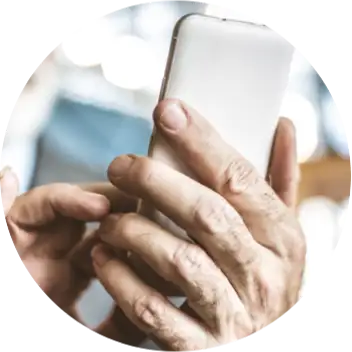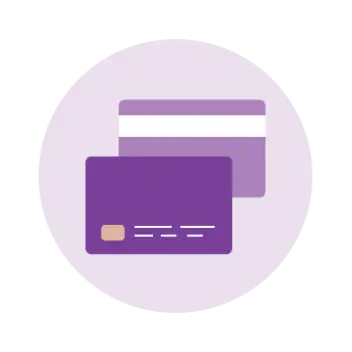
Mood Study 2
Join the Mood Study 2 using your Android phone
Your smartphone may be the key to unlocking a new understanding and treatment of mood and impact on overall health.
When we start someone on a treatment for depression, it takes at least several weeks before we know if the treatment will work. That's too long to wait. Our long-term goal is to transform depression care by more quickly finding out if a treatment is effective and being able to change it right away if it's not.

Verily is a subsidiary of Alphabet focused on life sciences and healthcare. Our mission is to make the world's health data useful so that people enjoy healthier lives
Verily is seeking study participants who want to contribute to groundbreaking research on how smartphones may predict mood and behavior changes. The goal is to help develop more objective measures of depression that could lead to more personalized treatments.

What's involved

Taking daily surveys
You'll answer questions about your health, sleep, physical activity, and more.

Complete check-ins
You'll submit weekly voice recordings to answer questions about your week.

Data collection
Your smartphone will passively collect useful environmental, location and activity data.
What you'll receive
It feels good to do good, plus you'll receive:

Compensation for your time

Exclusive access to the Baseline community, resources, and events
How will my data be protected
We take your privacy and confidentiality seriously. While Google provides the computing, analytics, and data handling power, Google will not sell your information for advertising. All your information will be stored in a secure, encrypted database with restricted access. We will not share any information with your insurance or medical providers without your consent.
Mood Study 2
Study FAQs
The intent of this study is to use smartphones to discover new ways to measure mood in real-time so that, in the future, clinicians may be able to predict whether someone is benefitting from a depression treatment.
The entire study lasts 12 months. The first 3 months (12 weeks), we ask participants to complete daily surveys. For the following 9 months, we ask that participants complete surveys every 2 weeks.
Project Baseline is a broad effort to better understand health and prevent disease. This study is a new, complementary initiative focused on measuring mood changes in real-time using smartphones. This is a different study than the initial Mood Study. Enrollment is open to all eligible participants, whether or not you participated in the initial Mood Study.
You need to own and use an Android smartphone and have a Google Account or being willing to create one to participate in the study.
During this study, you are expected to keep the app running on your phone and to complete various daily, weekly, and monthly surveys and activities, which prompt or ask you about:
- Your physical activity and sleep
- Your mood and anxiety
- Your social interactions and life satisfaction
- Record a brief voice log
- Type a short text log
Participants are expected to spend, on average, five minutes or less every day on study tasks.
No. We will not share any information with your insurance or doctor without your consent.
Data collected includes both your survey responses and phone sensor data.
We will only use this information for study purposes. Passive phone sensor data may include:
- Environmental data, such as light and air pressure
- Activity data, such as step count and movement
- Location data
- Phone usage data, such as screen, network, and battery use
Research studies suggest that these data can be predictive of mood. (Select references: Wang et al, 2014; Saeb et al, 2015; Place et al, 2017)
We take your privacy and confidentiality seriously. The data you provide will be stored in a secure, encrypted database with restricted access only to authorized study personnel. Members of the study team who need to contact you will have access to directly identifying information (your name, street address, phone number, and email). Otherwise, we'll remove this information and replace it with a code number. This study has been approved by the Western Institutional Review Board, an independent ethics committee, which protects the rights and safety of research participants. Please see our Privacy Policy for full details.
This study is observational, so the mobile app is not intended to be used for any type of medical diagnosis or treatment. Instead, it will monitor and track phone data that might be helpful in discovering new ways to measure and predict mood. These findings could potentially help others suffering from depression in the future.
No, you won't be able to see the data that you contribute toward this study.